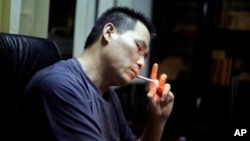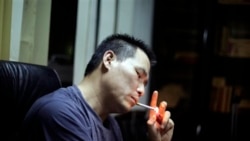Chinese authorities have revoked the license of prominent human rights lawyer Pu Zhiquiang. Mr. Pu, who is well known for his defense of Chinese dissidents, including labor camp victims and artist Ai Weiwei, was convicted last year of vague crimes like “picking quarrels and provoking trouble.”
Human rights defenders like Mr. Pu have been targeted by China over the past year. In its recently released report on Human Rights Practices for 2015, the State Department observed that in China, “Repression and coercion markedly increased during the year against organizations and individuals involved in civil and political rights advocacy and public interest and ethnic minority issues. The crackdown on the legal community was particularly severe, as individual lawyers and law firms that handled cases the government deemed sensitive were targeted for harassment and detention.”
The State Department cited other serious rights abuses in China, including tight restrictions on the freedoms of assembly, religion and travel for individuals and groups regarded as politically sensitive; enforced disappearance and strict house arrest to prevent public expression of critical opinion; continued censorship of public discourse on the internet and in print and other media; and severe official repression of fundamental freedoms for the Uighurs and Tibetans.
At the release of the report, Assistant Secretary of State of the Bureau of Democracy, Human Rights and Labor Tom Malinowski said that given the hardships faced by the people in China who work for good governance, ”We think it is especially important [for the United States] to stand by the lawyers being imprisoned for doing their jobs, by the religious minorities persecuted for their faith, the activists and journalists being abducted…for speaking out.”
Like people everywhere, he said, the Chinese people want to live in a country where the rule of law is respected, corruption is punished and exposed, and environmental problems are not swept under the rug. “When we speak out on these issues,” Assistant Secretary Malinowski observed, “we are 100 percent aligned with the aspirations of most ordinary people in China…That give us confidence that if we continue to speak out in a consistent and principled way, aligned with our allies around the world and people in China who are working peacefully for their rights,…over time we’ll be successful.”

















